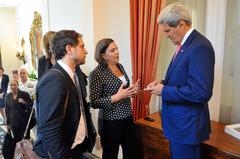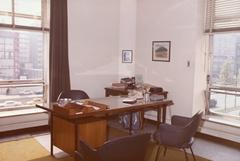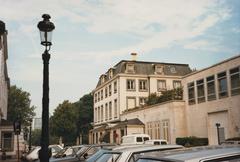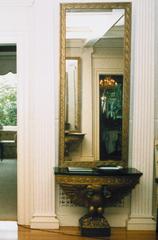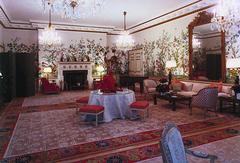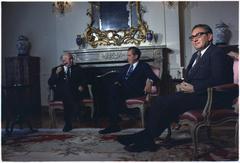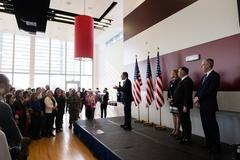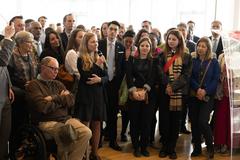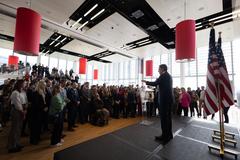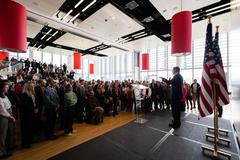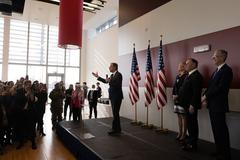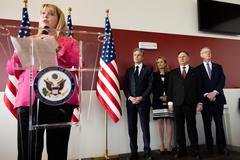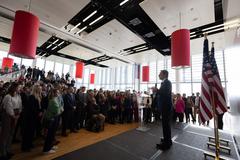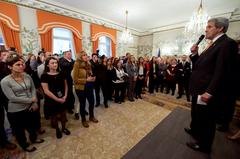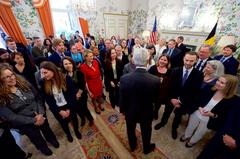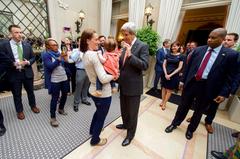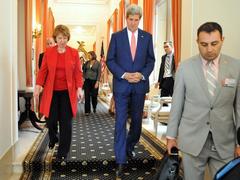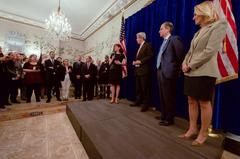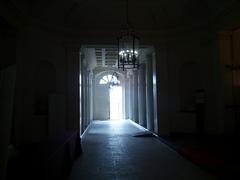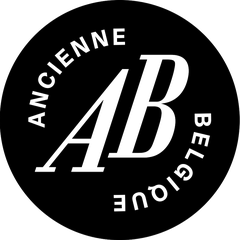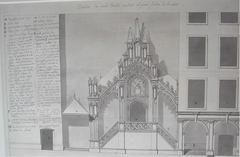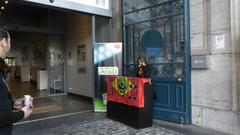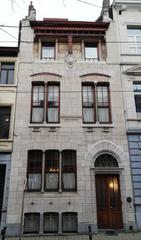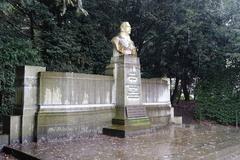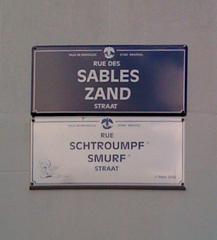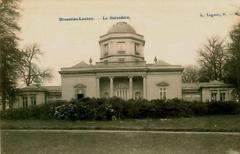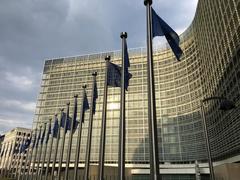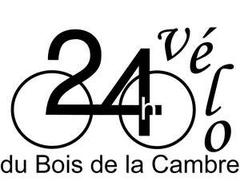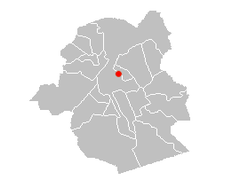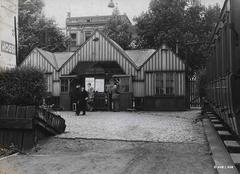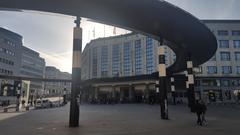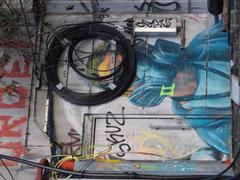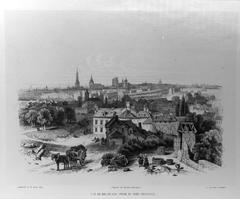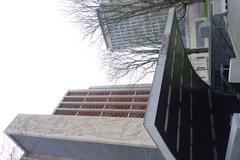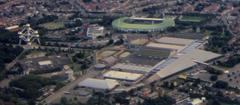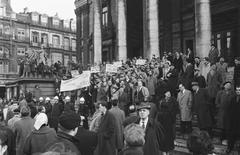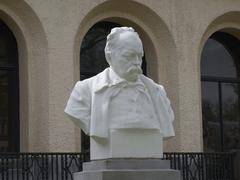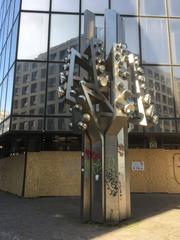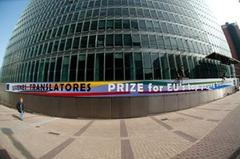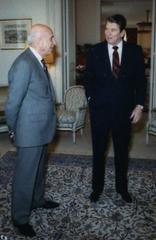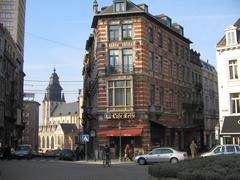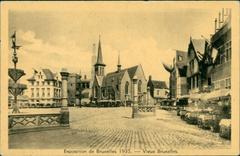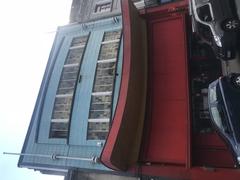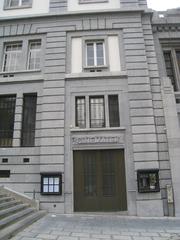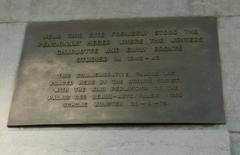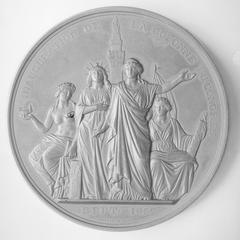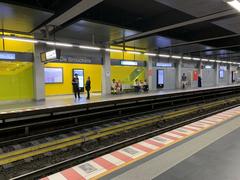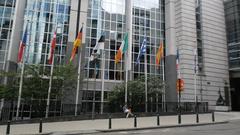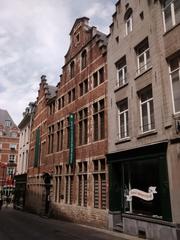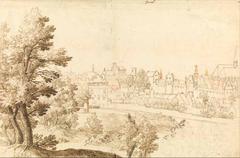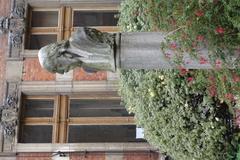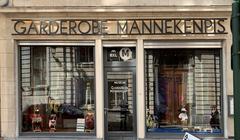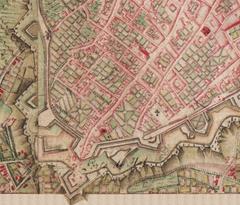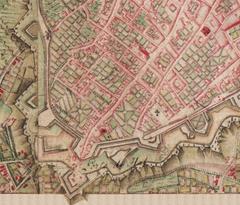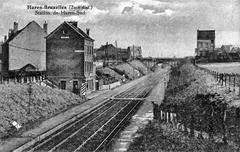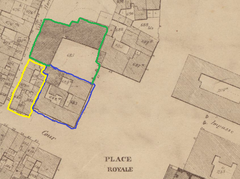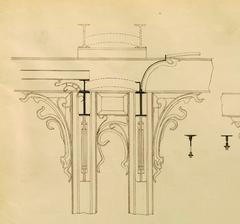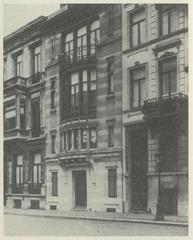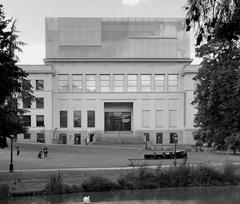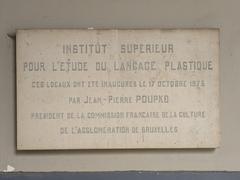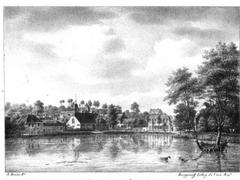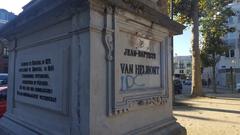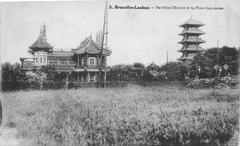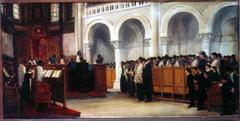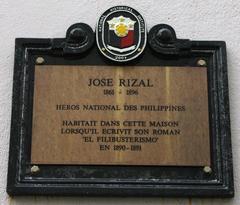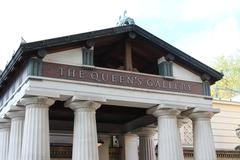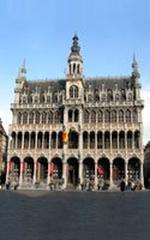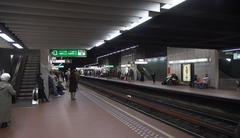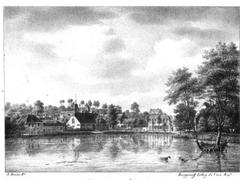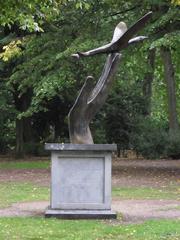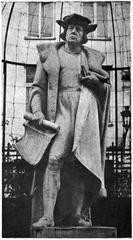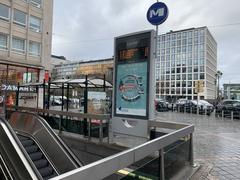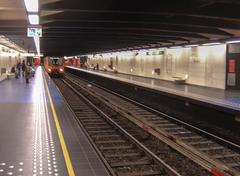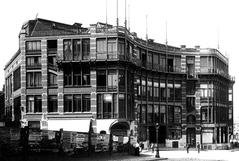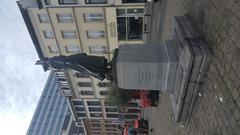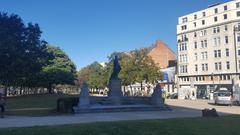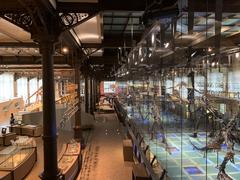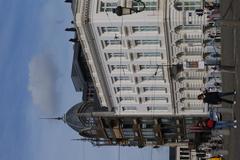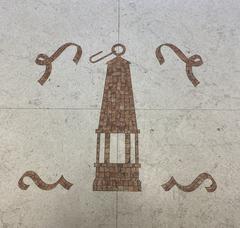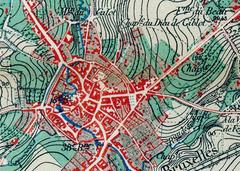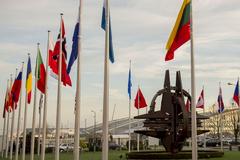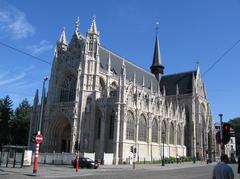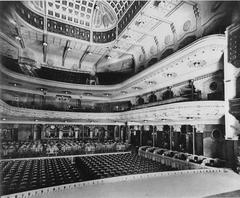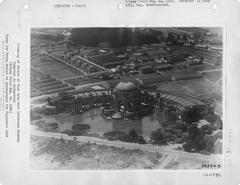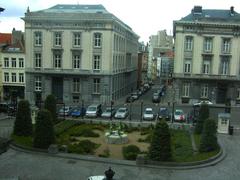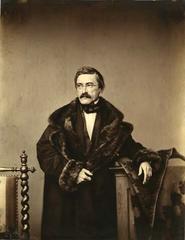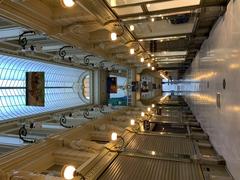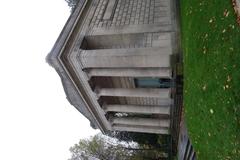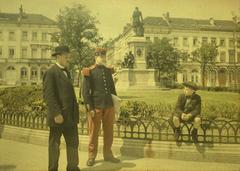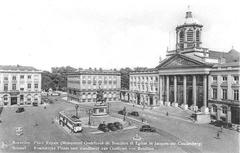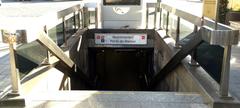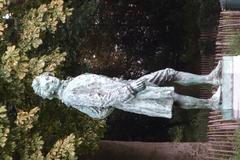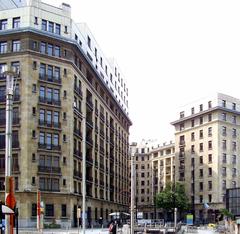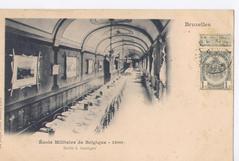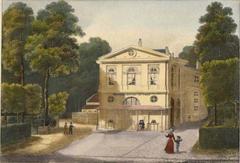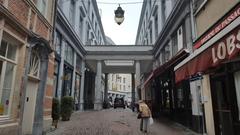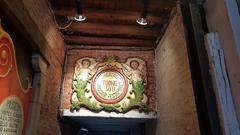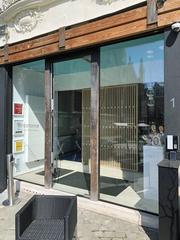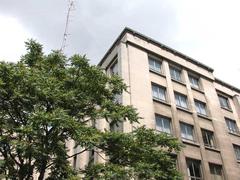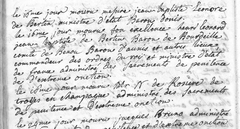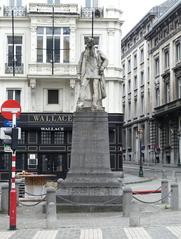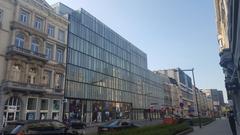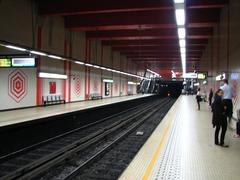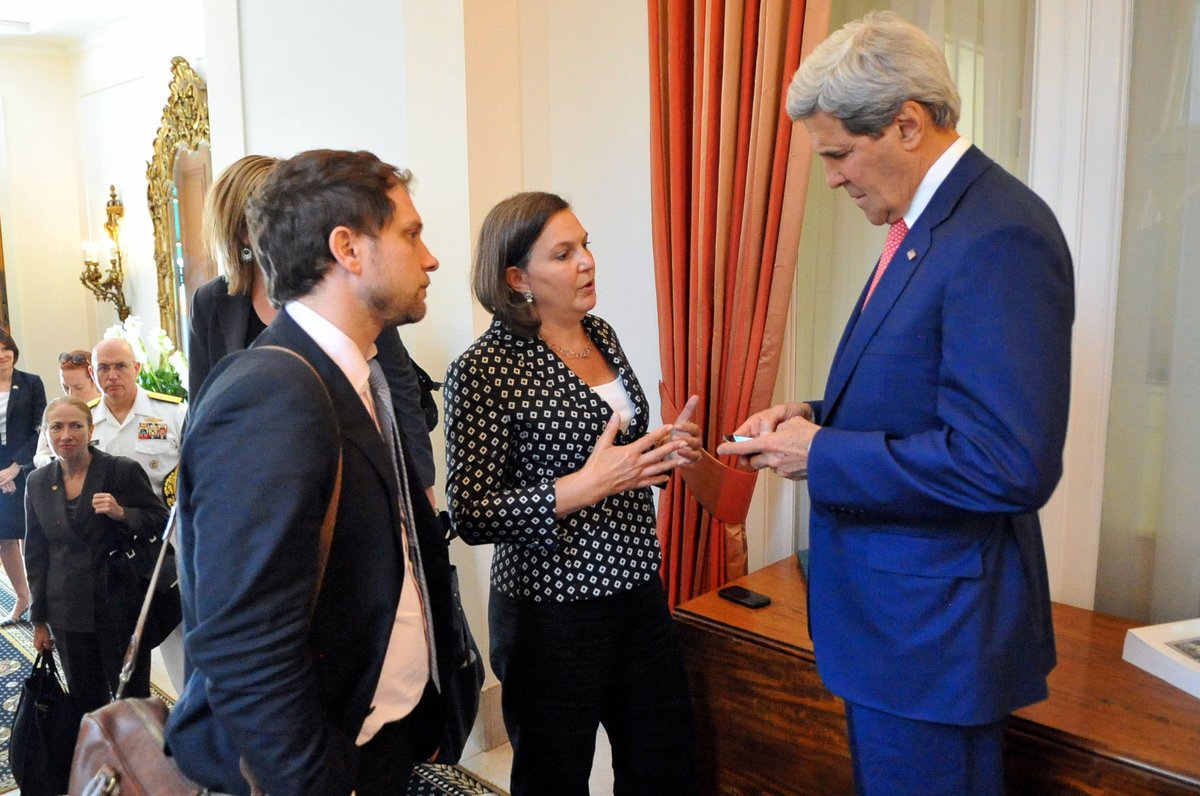
Visiting the Embassy of the United States in Brussels: A Comprehensive Guide Including Hours, Tickets, and Tips
Date: 15/06/2025
Introduction: History and Significance of the U.S. Embassy in Brussels
The U.S. Embassy in Brussels stands as a cornerstone of nearly two centuries of diplomatic engagement between the United States and Belgium. Established soon after Belgium’s independence in the 19th century, the embassy has played a pivotal role in transatlantic relations, witnessing critical historical events—from its elevation to embassy status in 1919, through disruptions during the World Wars, to its modern function as a hub for both bilateral and multilateral diplomacy. Located at 27 Boulevard du Régent, the embassy is not only central to diplomatic affairs but also a point of interest for visitors seeking consular services or exploring Brussels’ rich heritage. This guide provides detailed insights into the embassy’s history, visitor information, security measures, and its vibrant cultural context, making it a valuable resource for anyone planning a visit or wishing to learn more about U.S.-Belgian relations (history.state.gov, be.usembassy.gov, en.wikipedia.org).
Table of Contents
- Early Diplomatic Relations and U.S. Recognition of Belgium
- Evolution from Legation to Embassy
- Impact of World Wars
- Postwar and Modern Role
- Visiting the U.S. Embassy: Location, Hours, and Services
- Security Measures and Controversies
- The Embassy’s Diplomatic Functions
- Archival and Historical Resources
- Practical Visitor Tips
- Frequently Asked Questions (FAQ)
- Conclusion
- References
Early Diplomatic Relations and U.S. Recognition of Belgium
The U.S.-Belgian diplomatic relationship began shortly after Belgium declared independence from the Netherlands in 1830. The United States formally recognized Belgium’s sovereignty in January 1832, granting an exequatur to the Belgian consul in New York (history.state.gov). Official diplomatic relations commenced that same year, with Baron D. Behr presenting his credentials to U.S. Secretary of State Edward Livingston and Hugh Legaré becoming the first U.S. Chargé d’Affaires in Brussels. This marked the outset of a robust and enduring transatlantic partnership.
Evolution from Legation to Embassy
Reflecting Belgium’s growing strategic importance, the U.S. Legation in Brussels was elevated to embassy status on October 3, 1919, in the aftermath of World War I (history.state.gov). This change signified not only deepening bilateral ties but also the increasing complexity of U.S. interaction with European politics. The embassy became instrumental in diplomatic communication, economic collaboration, and cultural exchange.
Impact of World Wars
Belgium’s central location in Europe made it a battleground in both World Wars. During World War II, the U.S. Embassy was compelled to close in July 1940 following the German occupation. Diplomatic activities continued with the Belgian government-in-exile in London. The embassy resumed operations in Brussels after the city’s liberation in September 1944, underlining the resilience of U.S.-Belgian relations (history.state.gov).
Postwar and Modern Role
After World War II, the embassy played a critical role in rebuilding and fostering transatlantic cooperation. With Brussels becoming the seat of both the European Union and NATO, the U.S. Embassy grew into a strategic center for U.S. engagement in Europe. Today, the embassy complex includes several buildings in the diplomatic quarter, with plans for a future move to a new site in Etterbeek to further enhance security and functionality (en.wikipedia.org).
Visiting the U.S. Embassy: Location, Hours, and Services
Location and Accessibility
The U.S. Embassy is located at 27 Boulevard du Régent/Regentlaan, B-1000 Brussels. Situated in the heart of Brussels’ diplomatic district, it is easily accessible by public transport—metro stations Arts-Loi/Kunst-Wet and Parc/Park, plus multiple bus and tram lines are nearby. Parking is limited; public transit is recommended (embassies.info, embassies.net, be.usembassy.gov).
Visiting Hours and Appointments
The embassy operates Monday through Friday, typically from 8:30 AM to 5:30 PM. Consular services are generally available from 8:30 AM to 12:00 PM and 1:00 PM to 4:30 PM, by appointment only. Walk-ins are not accepted. Appointment booking is mandatory and should be done via the official embassy website (be.usembassy.gov).
Consular Services
Services include visa processing, passport issuance and renewal, Consular Reports of Birth Abroad (CRBA), notarial services, emergency assistance (arrests, medical emergencies, international child abduction), and support for American citizens in Belgium (usembassy.be).
Security and Entry
Security protocols are stringent. All visitors must present a valid government-issued photo ID and appointment confirmation, undergo security screening, and comply with policies regarding prohibited items (no large bags, laptops, cameras, or most electronic devices). Only one cell phone per visitor is permitted, and it must be checked at entry. The embassy is wheelchair accessible—notify staff in advance if special accommodations are needed (travel.state.gov).
Nearby Attractions
The embassy’s central location places it in proximity to numerous attractions:
- Royal Palace of Brussels
- Magritte Museum
- Grand Place
- Parc de Bruxelles
- Galeries Royales Saint-Hubert These sites are within walking distance and make for a rewarding cultural experience before or after your embassy visit (Visit Brussels, Full Suitcase).
Security Measures and Controversies
Following the events of September 11, 2001, enhanced security measures were implemented. A security perimeter now surrounds the embassy, with restricted access to adjacent streets and sidewalks, and rigorous entry protocols have become permanent. The privatization of certain security roles and access restrictions have generated local controversy, especially regarding public space and civil liberties (en.wikipedia.org).
The Embassy’s Diplomatic Functions
The U.S. Embassy Brussels not only manages bilateral relations with Belgium but also serves as a liaison to the European Union and NATO. Its functions span political reporting, economic analysis, public diplomacy, consular services, and support for American citizens. The embassy regularly coordinates high-level visits and negotiations, reinforcing the U.S. diplomatic presence in Europe (history.state.gov, be.usembassy.gov).
Archival and Historical Resources
Extensive archival materials documenting U.S.-Belgian diplomatic history are available through the Belgian diplomatic archives, including political correspondence from 1830 to 1934 (diplomatie.belgium.be). These resources are invaluable for researchers and history enthusiasts.
Practical Visitor Tips
- Plan Ahead: Book your appointment early and check required documentation.
- Travel Light: Bring only essential documents to facilitate security screening.
- Payment Methods: Consular fees can be paid in U.S. dollars or euros, by cash or credit card. Personal checks are not accepted (travel.state.gov).
- Health & Safety: Review current health protocols and travel advisories (useu.usmission.gov).
- Smart Traveler Enrollment Program (STEP): U.S. citizens should enroll to receive security updates (useu.usmission.gov).
- Nearby Amenities: Numerous hotels, restaurants, banks, and ATMs are within walking distance (embassies.net).
Frequently Asked Questions (FAQ)
Q: Where is the U.S. Embassy Brussels located?
A: 27 Boulevard du Régent/Regentlaan, B-1000 Brussels.
Q: What are the visiting hours?
A: Monday–Friday, typically 8:30 AM–5:30 PM. Consular services usually 8:30 AM–12:00 PM and 1:00 PM–4:30 PM. Appointment required.
Q: What items are prohibited?
A: Most electronic devices (except one cell phone, which is checked), large bags, food, beverages, and sharp objects.
Q: Is the embassy accessible for people with disabilities?
A: Yes. Notify the embassy in advance for special arrangements.
Q: Are tickets required to visit?
A: No. Appointments are required for consular services, but there are no tickets or entry fees.
Q: Can I visit without an appointment?
A: No. All non-emergency visits require a pre-scheduled appointment.
Q: Are guided tours offered?
A: No. Visits are limited to official consular business.
Conclusion
The U.S. Embassy in Brussels embodies a longstanding partnership between the United States and Belgium, serving as a diplomatic hub, a provider of consular services, and an accessible institution for American citizens and international visitors. Its prime location, comprehensive services, and strong commitment to security and accessibility make it a vital resource in Brussels. Visitors are encouraged to plan ahead, comply with security protocols, and take advantage of the embassy’s proximity to some of Brussels’ most iconic landmarks. For the most current information, always consult the official embassy website and consider using the Audiala app for travel updates and embassy news.
